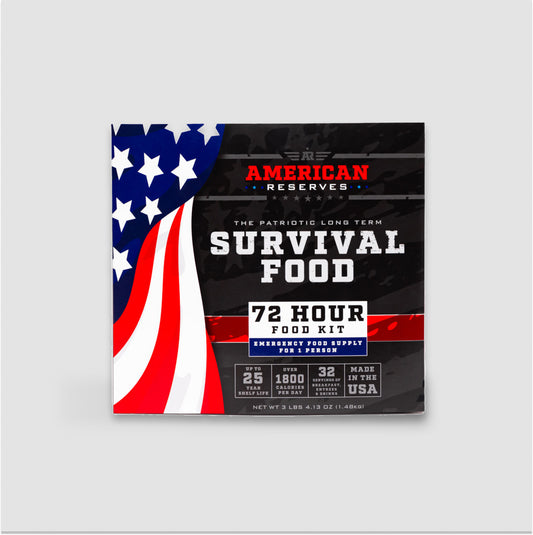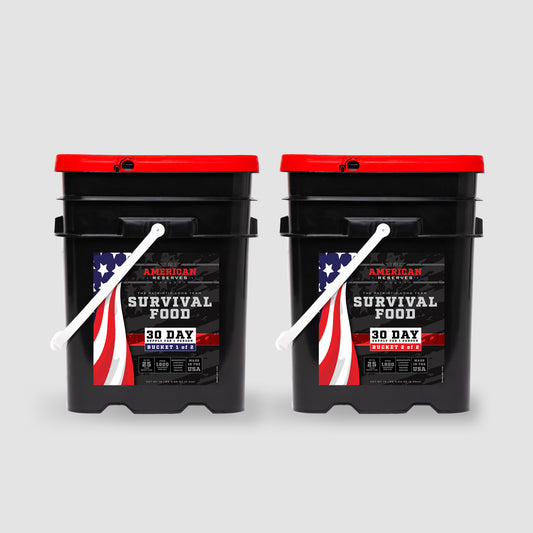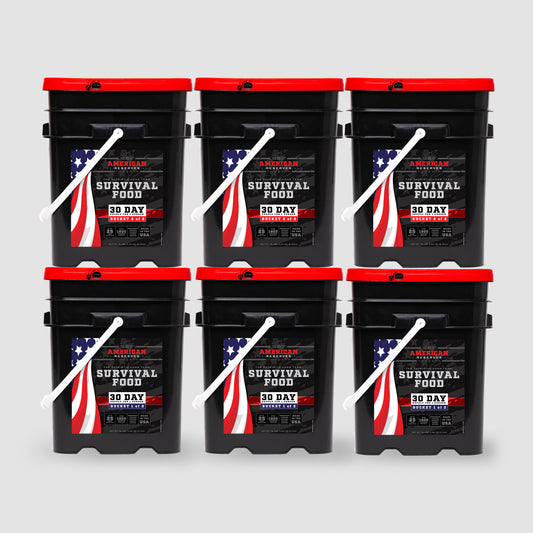
What To Bring Camping: Essential Camping Tips
For those yearning to escape the hustle and bustle of daily life, camping offers a serene retreat into the heart of nature. Whether you're planning a family getaway, a romantic couple's retreat, or a solo adventure, knowing what to bring camping is crucial for a seamless experience. This article provides a comprehensive packing list tailored to various camping styles, ensuring you have everything you need for a safe and comfortable journey. Dive into the essentials that will transform your outdoor escapade into a memorable adventure, filled with discovery and relaxation.
Why Proper Camping Prep Matters
Proper camping preparation is crucial for ensuring a safe, enjoyable, and stress-free outdoor experience. By thoughtfully planning what to bring camping, you can avoid common pitfalls such as being unprepared for weather changes, lacking essential gear, or facing unexpected challenges in the wilderness. Adequate preparation enhances your comfort and safety, allowing you to fully immerse yourself in nature without the worry of missing vital supplies. It also enables you to focus on the adventure and the joy of exploration, whether you're hiking through breathtaking landscapes, enjoying a peaceful night under the stars, or sharing memorable moments with loved ones. Ultimately, being well-prepared transforms your camping trip into a rewarding and unforgettable journey.
What To Bring Camping?
Shelter and Sleeping Gear
A reliable shelter is fundamental for a comfortable camping experience. Ensure you have a durable tent that suits the size of your group, complete with stakes and a rainfly for weather protection. Sleeping bags rated for the expected temperatures and sleeping pads or air mattresses will provide warmth and comfort during the night. Consider bringing a tarp or groundsheet to protect your tent floor and enhance insulation.
Clothing and Footwear
Packing the right clothing is essential for adapting to changing weather conditions. Layering is key, so bring moisture-wicking base layers, insulating mid-layers, and waterproof outer layers. Sturdy, comfortable hiking boots or shoes are crucial for navigating various terrains, while extra socks and a hat can offer additional warmth. Don't forget a swimsuit if you're camping near water.
Cooking and Eating Supplies
Efficient meal preparation requires the right cooking gear. A portable camping stove or grill, along with fuel, is essential for cooking meals. Bring lightweight, durable cookware, such as pots, pans, and utensils, as well as biodegradable soap for cleaning. Pack reusable plates, bowls, and cutlery, and ensure you have a reliable cooler or food storage system to keep perishables fresh.
Navigation and Safety Equipment
Staying safe and oriented in the wilderness is paramount, and practicing campfire safety is a crucial aspect of this. A detailed map and compass, or a GPS device, are essential for navigation. A first aid kit should be readily accessible, stocked with bandages, antiseptics, and any personal medications. Include a multi-tool or knife, a flashlight or headlamp with extra batteries, and a whistle for emergencies.
Personal Hygiene and Health
Maintaining hygiene in the outdoors is important for your health and comfort. Bring biodegradable soap, a toothbrush, toothpaste, and a quick-dry towel. Hand sanitizer and wet wipes are convenient for quick clean-ups. Don't forget sunscreen and insect repellent to protect against sunburn and bug bites.
Survival Food and Emergency Food Kits
In the event of unexpected delays or emergencies, having a supply of survival food is crucial. Pack non-perishable, high-energy foods such as granola bars, nuts, and dried fruits. Emergency food kits, which often include freeze-dried meals, are lightweight and easy to prepare with minimal water. These provisions ensure you have sustenance to rely on, providing peace of mind and security during your camping adventure.
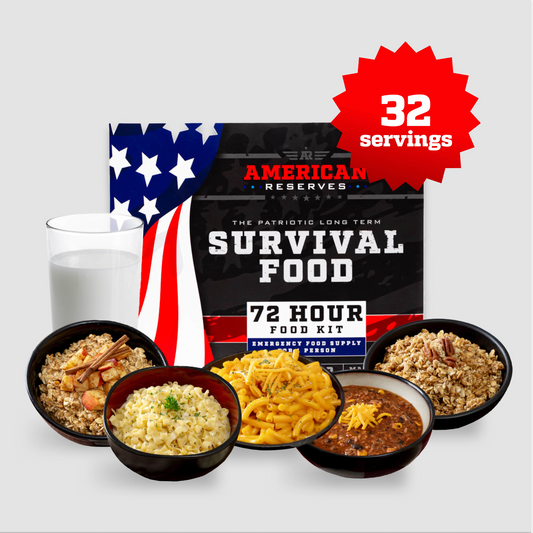
72 Hour Emergency Food and Drink Supply - 32 Servings
$36.99
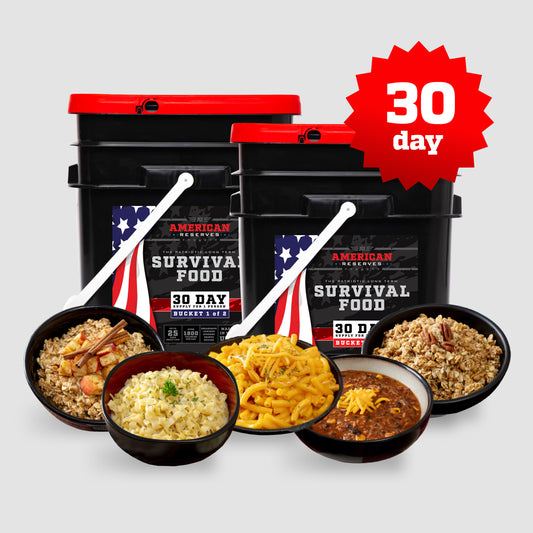
30 Day Emergency Food Supply
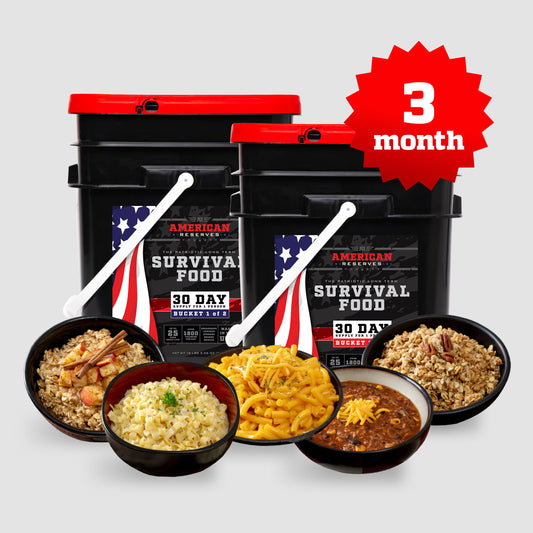
3 Month Emergency Food Supply
$835.00
What Is The Rule #1 Of Camping?
The number one rule of camping is to respect nature and leave no trace. This principle emphasizes the importance of preserving the natural environment for future generations by minimizing human impact. Campers should strive to leave their campsite as pristine as they found it, which involves packing out all trash, avoiding damage to plants and wildlife, and using established trails and campsites. By adhering to this rule, you contribute to the sustainability of natural areas, ensuring that they remain beautiful and accessible for everyone to enjoy. Practicing leave no trace not only protects the environment but also enhances your own camping experience by fostering a deeper connection with the natural world.
What Should You Look For In a Tent To Ensure Comfort and Durability?
When selecting a tent for comfort and durability, consider several key features to ensure it meets your camping needs. First, assess the tent's material and construction; high-quality, weather-resistant fabrics like ripstop nylon or polyester, combined with sturdy poles, provide resilience against the elements. Look for a tent with a waterproof rainfly and a robust floor to keep moisture out. Adequate ventilation is crucial, so choose a design with mesh panels and windows to prevent condensation and maintain airflow. The tent's size should comfortably accommodate your group and gear, offering enough headroom and space for movement. Additionally, easy setup and takedown features, such as color-coded poles and clips, enhance convenience, making your camping experience more enjoyable.
What’s The Best Way To Plan Meals For Camping?
Planning meals for camping with survival food kits is an efficient and reliable approach, ensuring you have nutritious and easy-to-prepare options. Begin by assessing the duration of your trip and the number of people to determine the quantity of food needed. Choose kits that offer a variety of meals to cater to different tastes and dietary needs, focusing on those that provide balanced nutrition and high energy. These kits are designed for convenience, often requiring minimal preparation and cooking time, which is ideal for the camping environment. Consider the weight and packaging of the kits, opting for lightweight and compact options to ease transportation. By incorporating survival food kits into your meal planning, you ensure that you have a dependable food supply, allowing you to focus on enjoying your outdoor adventure.
Essential Checklist and Camping Tips
- Plan Ahead and Research: Before setting out, research your camping destination to understand the terrain, weather conditions, and any specific regulations. This preparation helps you pack appropriately and ensures a smooth camping experience.
- Pack Multi-Purpose Gear: Opt for gear that serves multiple functions, such as a multi-tool or a sleeping bag that doubles as a blanket and bedding. This approach minimizes your load and maximizes efficiency, especially for backpackers and minimalists.
- Organize Your Packing: Use packing cubes or dry bags to organize your gear by category, such as cooking supplies, clothing, and first aid. This organization makes it easier to find items quickly and keeps your campsite tidy.
- Practice Setting Up Camp: Before your trip, practice setting up your tent and using your camping equipment at home. Familiarity with your gear saves time and reduces stress when you arrive at your campsite.
- Follow Leave No Trace Principles: Commit to leaving your campsite as you found it by packing out all trash, respecting wildlife, and minimizing your impact on the environment. This practice preserves the natural beauty for future campers and enhances your connection with nature.
- Include Emergency Food Kits: Pack emergency food kits that provide non-perishable, high-energy meals requiring minimal preparation. These kits ensure you have a reliable food source in case of unexpected delays or emergencies, offering peace of mind and sustenance during your camping trip.
Conclusion
In conclusion, a successful camping trip hinges on thoughtful preparation and a well-curated packing list that caters to your specific needs and preferences. By understanding what to bring camping, from essential gear and multi-purpose tools to emergency food kits, you can ensure a safe, comfortable, and enjoyable outdoor experience. Embracing the principles of leave no trace and planning with foresight not only enhances your adventure but also contributes to the preservation of the natural environment for future explorers. Whether you're a seasoned camper or embarking on your first journey, these tips and checklists empower you to explore the great outdoors with confidence and enthusiasm, creating lasting memories under the open sky.
Final Thoughts
Discover the unparalleled survival expertise and premium USA-sourced ingredients offered by American Reserves, resulting in emergency food supply kits that provide vital nutrition when you need it most. These kits are an essential part of any comprehensive emergency preparedness plan. Rely on the renowned quality of American Reserves to empower you to tackle any challenge with confidence!
Sources
